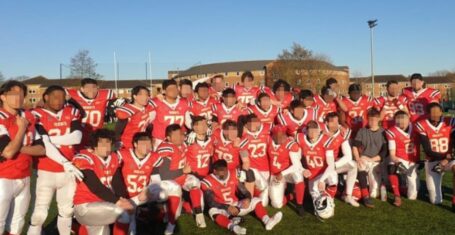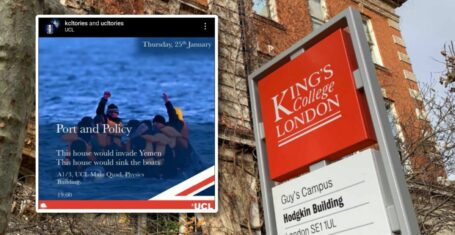
Questions you’re bored of being asked when you study English Language and Linguistics
No, I don’t mean English Literature
You may have heard of English Language and Linguistics. Perhaps your flatmate does it, or your eyes skimmed over it in the prospectus as you searched for Economics, but you haven’t really given it a second thought since. Your English Language knowledge is limited to your GCSE where you think you studied Lord of the Flies, and the difference between an adjective and an adverb has long since left your brain. Well, guess what, it’s an actual course at the university you attend, and here’s some questions Linguistics students are really bored of hearing.
Do you read a lot of books then?
This is the question thrown at us the minute we mention our degree. We brace ourselves for it, comebacks prepared, ready to reply with our now memorised answer: “No, because I’m not studying English Literature”. Contrary to popular belief, Language and Literature are actually completely different courses. At King’s they’re in different faculties, different departments and different campuses (although why we’ve been thrown into Waterloo with all the scientists, no one’s really sure), and the only times we encounter Literature students is if we pass them on the bridge.
We’d much rather learn about auxiliary verbs, conjunctions and pronouns than Shakespeare, Dickens and Chaucer, and we’d like it if you respected that. You don’t meet a biology student and cry, “Ah! Yes! A Physics genius!” do you?
In fact, the only book we’ll be reading is this bad boy:
So how many languages do you speak then?
Umm, just the one actually: English. It’s right there in the name of my degree, see? Several people, particularly grandparents, hear “language” and assume I can spout German, Hebrew and Mandarin like there’s no tomorrow, which is unfortunately not the case. While it would be great to be fluent in another tongue, it’s not an entry requirement for the course, nor is learning one part of the syllabus. We are quite a cultured bunch however, with over half of the students fluent in another language, be it their first or second language, but it’s still slightly irrelevant to the degree. We can tell you how people acquire foreign languages, but that’s a different story.
Although we become fluent in Spanish after a few Mojitos
You must want to be a teacher then!
Er… No. Just because we’ve been blessed (or cursed) with grammatical brains and a love of Sociolinguistics does not mean we like children any more than the rest of the world. Those studying Maths aren’t constantly asked if they want to be a Maths teacher, so why does our degree make people assume we want to spend the rest of our lives spouting it back to bored children?
While there are some people on the course who would like to maybe…one day…possibly become teachers, our knowledge of child language development doesn’t mean we want to help actual children develop language. In fact, it’s probably put most of us off.
So… what is it you want to do, exactly?
This question often replaces the previous. People hear “English degree” and alarm bells start ringing – what on Earth do you do with it? If you learn one thing today let it be this – please don’t ask a Linguistics student this question. Most of us are here because we have no idea what we want to do, so we picked a course that we enjoy, are good at, and can lead to loads of different things. Speech therapy, journalism, advertising, writing, teaching, researching… the list is actually endless for a Linguistics graduate, and we’re obviously such a chilled, laid-back bunch that we just don’t need to think about the future right now. Just… don’t ask me again.
Can you just help me with…
Let’s get something straight. Just because I’m an English Language student, it doesn’t mean that I know, like, everything. I don’t know how to spell your colleague’s name, I don’t know the customary way to end an email to a travel agent and I don’t know why your son can’t speak at the age of five. I do know the difference between effect and affect though, so ask me that if you want.
Why?
Because I want to, okay? And actually, we’re a pretty awesome bunch.









































